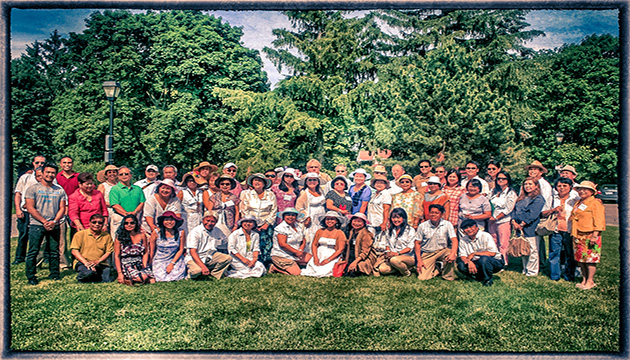February 16, 2025 — Many look forward to retirement as a time to savour the fruits of long years of working.
This is the reason why retirement is often referred to in glowing terms as the “golden years” of a person’s life.
For some, however, this time cannot be fully enjoyed because they are not financially secure.
This explains partly why a lot of Filipinos in Canada are likely to continue working after reaching the retirement age of 65.
They remain in the labour market because they need the income to support themselves and their loved ones.
In fact, among racialized peoples past the age of 65 in Canada in 2020, Filipinos have the highest employment rate.
A Statistics Canada report stated that 34 percent of Filipinos beyond retirement age have employment income in 2020, which is above the overall rate of 26 percent for ethnic folks.
Among non-racialized people past 65 years old in 2020, the employment rate was 29 percent.
Coming in second to Filipinos were Blacks, 32 percent; Latin American, 28 percent; South Asian, 26 percent; Arab, West Asian and Japanese, 25 percent; Southeast Asian and Korean, 23 percent; and Chinese, 21 percent.
Released on February 3, 2025, the Statistics Canada study prepared by Dorcas Hindir is titled “A look at income sources of racialized individuals 65 years and over in Canada, 2020”.
The paper noted that Filipinos in the Canadian labour market past the age of 65 in 2020 earned a median income of $21,000.
“Among these workers, 40% of men earned $25,200, while 31% of women earned $18,600.”
The paper related that Canada’s population is “aging rapidly, with an increasing number of people aged 65 and over”.
“This is particularly evident among racialized groups, whose population grew by 38% from 2016 to 2021, far more than the same age group in the non-racialized populations, which grew 18% over the same period.”
“Although racialized people make up a significant proportion of this aging population, they can face specific challenges in terms of social and economic integration, as well as unequal access to the labour market. These factors can limit their ability to accumulate resources for retirement, such as pensions.”
Statistics Canada also reported that “racialized individuals with high employment income at retirement are often those who have fewer sources of other income, such as private retirement income”.
“This suggests that because of the lack of these additional income sources, these individuals are forced to continue working beyond age 65 to supplement their financial resources. This may be why about half of older adults who continue to work do so out of necessity, often to meet their basic needs or support their families.”
Meanwhile, it is sometimes said that one reason why many senior Filipinos continue to work is because they want to generate extra income to support their leisure activities, particularly travel.
Many Filipinos past retirement age want to take regular vacations in the Philippines to visit old family and friends. Others travel the world.
It is also heard that some folks want to continue working to escape boredom and to keep their bodies and minds active.
Statistics Canada’s “A look at income sources of racialized individuals 65 years and over in Canada, 2020” also reviewed the total incomes of people past 65 years old as of 2020.
For reference, total income includes employment income, investment income, and public and private pensions.
The study noted that racialized peoples past 65 are less likely to have multiple sources of income compared to the non-racialized population.
With respect to median income, Japanese folks have the highest at $38,800. Non-racialized individuals follow second with $35,200, and Blacks, third with $28,600.
Filipinos come in fourth with a median income of $26,600.
In Canada, the current retirement age is 65, and people at this stage in life can start receiving government benefits, particularly the Canadian Pension Plan (CPP) and Old Age Security (OAS) pension.
They can also access funds like Registered Retirement Savings Plans (RRSPs) and employer-sponsored pension plans.
For people approaching retirement age, it is recommended that they review where they’re at financially and come up with a plan to support them as they ride off to the sunset.













